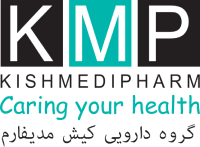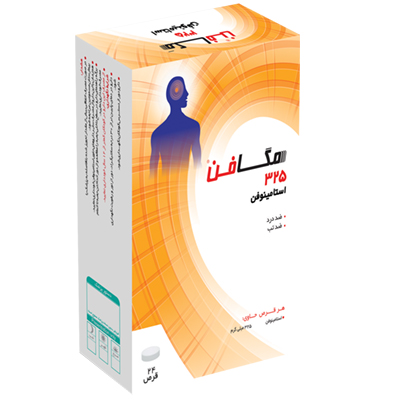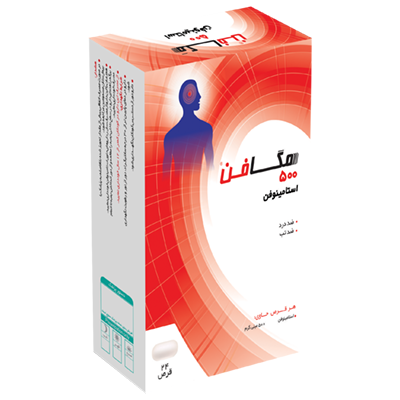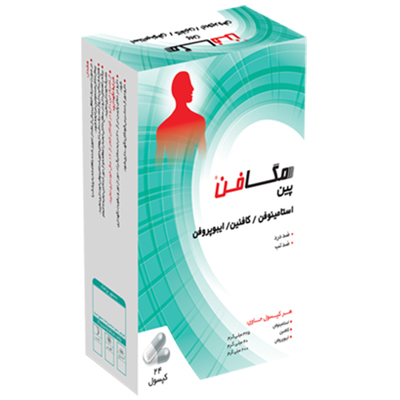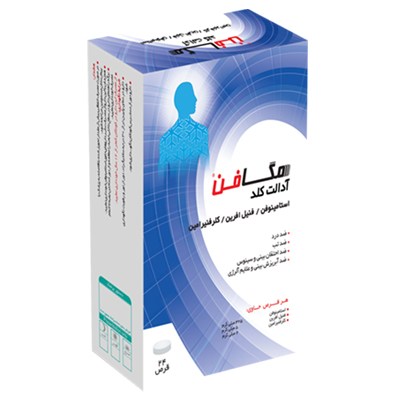You may also have skin problems, acne vulgaris and pimples, psoriasis, dermatitis, eczema and milia are common types of skin diseases. These conditions may not only look bad when they cause problems, but also have a bad effect if they are severe. One of these skin conditions is acne, in order for the treatment of acne scars to go well, the cause, symptoms and severity should be examined under the supervision of a specialist and the most appropriate treatment should be applied.
What is acne scar? And what are its types?
An acne scar is a mark left by the skin after healing and occurs when there is a disruption in the collagen production process during healing. If the skin's collagen production is less than the allowable limit after healing a pimple, the skin will be in a sunken state, and if the collagen production is more than the limit, the skin will be raised and bulged.
Some acne scars will go away on their own, but if these marks remain, you should see a specialist for acne scar treatment so that he can start medication based on the severity and type of scar, the type of acne you had, and your medical history.
Acne scars are divided into seven types based on severity:
- Roller Oscars: If, after removing a pimple, the scar appears below your chin and has an uneven appearance, you probably have a roller acne scar.
- Hypertrophic acne scars: This model usually leaves prominent and raised acne scars on the shoulders, chest, and back after treatment. As mentioned, these scars appear due to excessive collagen production on the skin's surface.
- Keloid acne scars: This type of acne scar is similar to hypertrophic scars in that it has a raised appearance but is accompanied by pain, itching, and inflammation.
- Acne scars with dark spots: The appearance of darker spots than your skin, especially if you are a brunette, after acne scar treatment indicates excessive melatonin production..
- Perifollicular sclerolysis: This skin condition occurs if your acne is papular acne and after treatment, it develops into round or oval raised spots the same color as your own skin, on your arms, chest, and back.
- Box-shaped acne scar: These types of acne scars usually develop on the lower jawline and cheeks. They get their name from their square appearance.
- Oscar Ice Pack: Facial acne scars are sometimes caused by a deep hole on the forehead or upper cheek, also called an eye pack scar.
Acne is divided into the following types based on its severity: blackheads (blackheads caused by contact with oxygen in the air), whiteheads, nodules, papules, pustules, and cysts. Now that you know the answer to the question of what acne scars are, you should pay attention to the fact that when your skin suffers from such problems, be sure to treat it in the right way to prevent the risk of acne scars.
How to prevent acne scars during acne treatment?
Before you get to acne scars and their effects, it is better to prevent these skin problems with basic things. It definitely takes less time to do the necessary prevention than to remove acne scars. Some of the minimum things you should follow during treatment are listed below. We have done it.
- Don't pop your pimples and try not to manipulate them.
- Use sunscreen and moisturizers that are suitable for people prone to acne.
- Do not use facial scrubs, toothpaste, or other hygiene products not recommended by a doctor on the pimple.
- Treat each type of acne specifically for better healing and no scars (in another article about the types of acne). Anti-acne cream (And we talked about the strongest acne gel) If the treatment is tailored to the type of acne, there is less chance that its effect will remain.
- Avoid tobacco and alcohol, as these harmful substances can also worsen acne and cause more severe scarring.
- Prompt treatment and care can prevent acne scars from forming.
10 quick ways to treat acne scars
Acne scars are painful in themselves, let alone the unpleasant effects they can leave behind, such as dimples or bumps. If you didn't treat them properly or picked at them, you're more likely to have them on your body and face now. The good news is that some acne scars can be removed or reduced in size with proper treatment.
Acne scars are classified into macular, mild, moderate, and severe based on their severity, with more severe acne scars being more difficult to remove. We will share 7 essential tips for removing acne scars below..
A quick way to remove facial acne scars with CO2 laser
This method uses carbon dioxide to create pores in the skin, which are then filled with the appropriate collagen on the surface of the skin. CO2 laser therapy is one of the newest skin treatment technologies. In addition to treating acne scars, this type of treatment can also help rejuvenate facial skin by producing collagen, if your doctor recommends it.
This type of treatment usually works in a shorter period of time and is considered a quick-returning treatment. This treatment should be performed under the diagnosis and supervision of a specialist physician.
Acne scar treatment with filler
Fillers usually contain hyaluronic acid and fill in hollows and hollow areas of the skin, such as under-eye circles. Filler therapy is also used to eliminate acne scars and quickly fill in the depressions caused by acne scars. This method involves injecting hyaluronic acid into the skin.
Most fillers last between 6 and 18 months, but some may be permanent, and will need to be re-injected after a while. This treatment can be more risky for people with a history of keloids or darker skin, so it should be done in consultation with a specialist.
Microneedling is a safe way to remove acne scars.
Needle means needle and as the name suggests, this method is done using very small needles. Microneedling is another new method used to remove acne scars. The needles, which are inserted into the top layer of the skin, stimulate the skin to produce collagen.
This method even helps reduce wrinkles, and is also useful for treating acne scars caused by atrophic acne. Microneedling is performed under local anesthesia and you may see results for up to 9 months, and this type of treatment is also considered one of the least risky types of acne scar treatment.
Corticosteroid injections are an effective method for treating acne scars.
If laser, filler, and microneedling treatments don't work for you and your scar is prominent and raised, you may need to have a corticosteroid injection, as your doctor has diagnosed it. Since corticosteroids have anti-inflammatory properties, they can reduce inflammation caused by acne scars.
Of course, it should be remembered that since corticosteroids reduce collagen production, they are not a long-term method and if used for a long time, they can also lead to wrinkles. This method is also called subcision.
Chemical peels, dermabrasion, and microdermabrasion are miracles in removing acne scars.
These types of peels, since they remove the top and middle layers of the skin, force the skin to produce collagen and create new cells. For example, chemical peels are where a chemical solution is poured onto the skin and this solution lifts a thin layer of skin, which can help fade acne scars. These types of treatments are used to treat deeper acne scars and should be done in consultation with and under the supervision of a dermatologist.
Sunscreen suitable for treating acne scars
It may seem counterintuitive, but using sunscreen that is appropriate for your skin type is important in controlling the signs of acne scars. Direct sunlight can darken your skin, especially in areas that already have scars. So using the right sunscreen can help to fade acne scars.
Salicylic acid: from acne treatment to removing facial scars
In another article where we talked about treating acne and pimples, salicylic acid was one of the things that could be used in a unique way. Acne treatment This ingredient also works well in fading acne scars, allowing you to incorporate it into your skincare routine.
Salicylic acid is applied in a thin layer to the skin and its anti-inflammatory properties reduce redness and swelling. The only thing to keep in mind is that this acid is not suitable for sensitive skin as it can irritate and dry out the skin.
Topical retinoids are an effective solution for treating acne scars.
Retinoids, which come in different doses, can be effective in treating acne scars in addition to treating acne itself. When using retinoids, don't forget to use sunscreen during your retinoid treatment. Retinoids are also a group of molecules that range in strength and intensity. Choosing the right retinoid will help you achieve the best results.
Alpha Hydroxy Acid (AHA) is a new way to get rid of acne scars.
This acid, a gentle exfoliant, can help improve skin condition, even helping to fade acne scars. It works by gently removing a layer of the skin's surface, helping to remove dead skin cells and dead skin cells. As a result, the skin tone becomes brighter.
Punch excision surgery is an invasive method of treating acne scars.
This type of surgery is considered an invasive procedure and is one of the most effective ways to treat acne scars. In this procedure, a specialist doctor uses a tool called a punch excision to remove the acne scar and then stitches it up. It is important to note that aftercare is very important.
For Acne scar treatment and removal can be done with non-invasive and invasive treatment methods, including salicylic acid, alpha hydroxy acid, retinoids, and skin-friendly sunscreen. Also, methods such as filler injections, microneedling, corticosteroid injections, laser therapy, chemical peels, dermabrasion, and microdermabrasion can be performed.
How to remove acne scars with 6 simple home remedies
One of the most painful places to leave acne scars is the face. You may be able to reduce these acne scars by following some simple home remedies and using over-the-counter creams to treat and remove acne scars at home.
If these home remedies don't help, consider invasive treatments with the approval of a medical professional. Here are 5 of the easiest things you can do at home to get rid of acne scars.
- Use of Creams containing azelaic acid or hydric acid Over-the-counter products help reduce the color of dark spots and redness on the skin.
- Silicone gels and dressings Sold in pharmacies, they are a simple and handy way to get rid of acne scars at home. Keep in mind that silicone-based products have an optimal usage time and are best used immediately after the scar has formed.
- Skin whiteners Over-the-counter products that can be easily purchased at pharmacies can prevent the darkening of existing spots.
- Niacinamide acid (a type of vitamin B) and retinol (a type of vitamin B) Other home remedies that are effective in removing acne scars at home are: Retinol is used not only to treat acne itself but also to treat acne scars. It helps to open clogged pores and regenerate new skin cells.
- Vitamin C It is a powerful antioxidant that also helps heal and treat acne scars.
- Tretinoin Other items found in drugstore products include Acnemis gel, which is made from tretinoin and clindamycin, which is also an antibiotic and is also useful for treating acne.
Conclusion
Removing acne scars is one of the issues that is on the minds of many people today, and many people suffer from these skin conditions. Fortunately, today, with invasive and non-invasive treatments performed in skin centers, a very large percentage of people can easily get rid of these problems.
To treat acne scars, you can use creams and gels that are used at home under the supervision of a specialist and pharmacist. It is better if you can prevent acne and its effects before it occurs. With prevention, home treatment and treatments performed in skin centers, you no longer need to worry about removing your acne scars.
